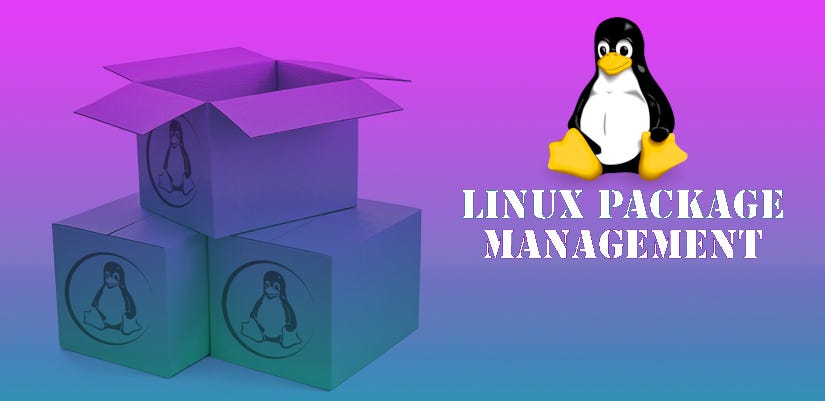Demystifying Package Managers: Your Ultimate Guide to Software Management in Linux
 Shubham Godse
Shubham GodseTable of contents
- Understanding Package Manager and Systemctl
- Introduction - Embarking on a Linux Journey with Package Managers
- What is a Package Manager in Linux?
- What is a Package?
- Different Kinds of Package Managers - A Diverse Landscape
- Installing Docker and Jenkins - A Hands-On Guide
- Systemctl and systemd - The Power of Control
- 🚨 Personal Experience Alert: How This Journey Began
- FAQs - Your Burning Questions Answered

Understanding Package Manager and Systemctl
Learn about package managers in Linux and how they allow users to install, remove, and manage software packages. Discover the significance of packages and explore different kinds of package managers. Follow a personal story of installing Docker and Jenkins on Ubuntu and CentOS using package managers. Also, delve into systemctl and systemd to control services on Unix-like operating systems. Engage with comprehensive content, FAQs, and expert insights in this SEO-optimized blog.
Introduction - Embarking on a Linux Journey with Package Managers
🚀 Welcome, fellow tech enthusiasts, to an exhilarating journey into the realm of Linux package managers and the magnificent systemctl! 🎉 In this blog, I'll share my personal experiences, insights, and step-by-step guides . Today, we'll dive into understanding package managers and their pivotal role in the Linux ecosystem.
What is a Package Manager in Linux?
📦 Ah, the magic behind installing, removing, upgrading, and configuring software packages in Linux! Let me take you through the captivating world of package managers. 🌟
A package manager is a nifty tool that empowers users to effortlessly interact with software packages on their operating system. Whether you prefer a user-friendly graphical software center or the command line prowess of apt-get or pacman, package managers have you covered! So, buckle up, and let's demystify the intriguing world of Linux packages.
What is a Package?
📦 Before we delve deeper into the package manager realm, let's grasp the essence of what a package truly is. 🎁
In simple terms, a package refers to an application, but it can also encompass GUI applications, command line tools, or software libraries required by other programs. These packages are like treasure chests filled with binary executables, configuration files, and sometimes vital information about dependencies. They are the building blocks of software installations and upgrades, making them integral to our Linux adventures.
Different Kinds of Package Managers - A Diverse Landscape
💡 Now that we have our package basics sorted, let's explore the diverse landscape of package managers. 🗺️
Package managers can differ based on the packaging system, and you might be surprised to find multiple package managers for a single packaging system. For example, the RPM packaging system has both Yum and DNF package managers. On the other hand, the DEB packaging system boasts apt-get and aptitude as its command-line package managers.
Installing Docker and Jenkins - A Hands-On Guide
🐳 Are you ready for some hands-on action? Let's install the powerful Docker and Jenkins using our favorite package managers on Ubuntu and CentOS! 🚀
Installation on Ubuntu
Update your package list with
sudo apt-get update.Install Docker using
sudo apt-get installdocker.io.Enable and start Docker with
sudo systemctl enable --now docker.For Jenkins, add the key and repository with:
wget -q -O - https://pkg.jenkins.io/debian/jenkins.io.key | sudo apt-key add - sudo sh -c 'echo deb http://pkg.jenkins.io/debian-stable binary/ > /etc/apt/sources.list.d/jenkins.list'Install Jenkins with
sudo apt-get install jenkins.Enable and start Jenkins with
sudo systemctl enable --now jenkins.
Installation on CentOS
Update your package list with
sudo yum update.Install Docker using
sudo yum install docker-ce.Enable and start Docker with
sudo systemctl enable --now docker.For Jenkins, install Java with
sudo yum install java-11-openjdk-devel.Download Jenkins with
sudo wget -O /etc/yum.repos.d/jenkins.repohttps://pkg.jenkins.io/redhat-stable/jenkins.repo.Import the Jenkins key with
sudo rpm --importhttps://pkg.jenkins.io/redhat-stable/jenkins.io.key.Install Jenkins with
sudo yum install jenkins.Enable and start Jenkins with
sudo systemctl enable --now jenkins.
Systemctl and systemd - The Power of Control
🔧 Now that we have Docker and Jenkins up and running, let's explore the power of systemctl and its counterpart, systemd. 🚀
Checking Docker Service Status
To examine the status of Docker, simply run systemctl status docker. If you followed the installation steps correctly, you should see a green light indicating that Docker is active and running smoothly.
Stopping and Monitoring Jenkins
Now, let's have some fun with Jenkins! To stop the Jenkins service, type sudo systemctl stop jenkins. Then, take before and after screenshots to witness the remarkable transformation.
Systemctl vs. Service - Unraveling the Differences
🔁 There's a lot of buzz around systemctl and the traditional service command. Let's uncover the key differences between them. 🔄
While both commands manage services, systemctl comes with significant advantages. It allows more in-depth control, supports dependency management, and enhances overall service management capabilities. So, hop on the systemctl bandwagon for a modern and efficient experience!
🚨 Personal Experience Alert: How This Journey Began
🌟 Before we part ways, let me share the thrilling story that led me to pen this blog. 🖊️
Once upon a tech-filled night, as I embarked on my Linux odyssey, I was bewildered by the vastness of the package manager world. Yet, with determination and countless terminal commands, I unraveled the secrets of Docker and Jenkins installations. Armed with the power of systemctl, I tamed the unruly services on my system. It's this captivating journey that inspired me to share my experiences with you, my dear readers.
FAQs - Your Burning Questions Answered
| FAQs | Answers |
| Can I use multiple package managers simultaneously on my Linux system? | Yes, you can! Linux is all about freedom and versatility. You can use different package managers for various purposes without conflicts. However, it's essential to understand the potential consequences and dependencies to ensure a smooth experience. |
| Are package managers exclusive to Linux distributions? | Package managers are closely tied to Linux and Unix-like systems, making them an integral part of the ecosystem. While other operating systems have their own ways of managing software, the Linux world cherishes its package managers for their efficiency and power. |
How does systemctl simplify service management compared to the traditional service command? | systemctl introduces more advanced and flexible features for managing services. It supports dependency tracking, allowing you to handle complex service hierarchies with ease. Additionally, it provides better integration with systemd, the system and service manager, streamlining operations. |
| Can I use Docker and Jenkins on other Linux distributions as well? | Absolutely! Docker and Jenkins are versatile tools that work splendidly on various Linux distributions. With package managers like apt-get, yum, and |
Subscribe to my newsletter
Read articles from Shubham Godse directly inside your inbox. Subscribe to the newsletter, and don't miss out.
Written by
